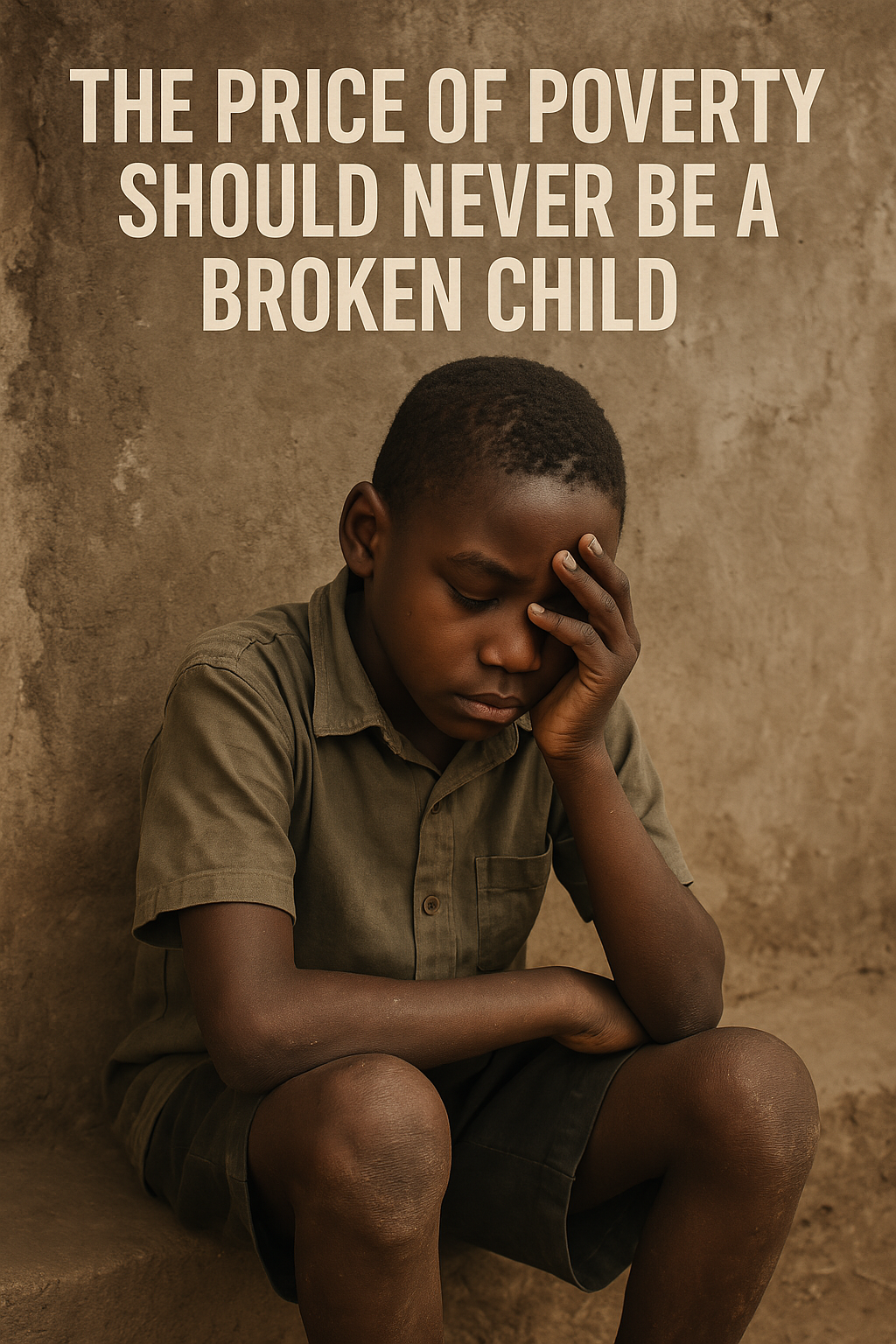The other day during the Africa Children Summit 2025, I found myself in a breakout session listening to children from Malawi. I thought they will be sharing about their school experiences , stories, I assumed, of books, subjects and maybe friendships or playtime. But what I heard was different. It wasn’t about learning. It was about surviving. It was about pain. About fear. About navigating school systems that felt more like battlefields than safe havens.
And in that moment, I realised something that hasn’t left me since: violence in schools isn’t always loud. It doesn’t always scream or leave bruises. Sometimes, it whispers. Sometimes, it hides in plain sight. And sometimes, it has become so normalised that we no longer even recognise it for what it is — violence.
We tend to think of violence in classrooms as beatings or corporal punishment. But it’s also in the quiet exclusions, in the small humiliations that chip away at a child’s sense of self. It’s the child denied access to education simply because they can’t afford school fees or a uniform. It’s the girl laughed at for bleeding through her skirt, who then chooses to stay home for a week every month. It’s the boy mocked for not having lunch, who finally stops showing up to school altogether.
These are traumas that children carry, often in silence. And the tragedy is that our schools — places that should be filled with hope, safety, and growth — are slowly turning into places of quiet suffering. Inequality, poverty, and discrimination are colliding in these classrooms, and it is children who are left to pick up the pieces.
We speak of education as a right. Yet for far too many children across Africa, it is still treated like a privilege. The barriers are countless: unpaid fees, lack of menstrual products, gender-based discrimination, stigma surrounding early pregnancy. These aren’t just inconveniences, they’re walls that keep children, especially girls, locked out of opportunity. Add the threat of violence, ridicule, and harmful stereotypes, and school becomes a place of shame and silence rather than learning and joy.
Poverty feeds this vicious cycle. Children from low-income families miss school frequently, some pushed into child labor, others kept at home to care for siblings or fetch water. When they do show up, exhausted and distracted, they’re labelled lazy or punished for underperformance. No one asks what they’re going through. No one sees the emotional scars or hears the weight they carry. Many slip into depression. Others simply lose hope.
What we’re witnessing is not just a failure of systems ,it’s a failure of empathy. A failure to prioritise children’s well-being beyond academics. A failure to build school cultures where safety, care, and kindness are not optional but essential.
Every child should feel they belong. Every classroom should be a space where background doesn’t dictate treatment, where gender doesn’t limit opportunity. And every teacher should understand that their role extends far beyond the syllabus, they are not just educators, but protectors and nurturers.
We can draft the most well-worded policies. We can design frameworks filled with the right buzzwords: inclusive, safe, child-friendly. And we should. But the real question is — are we practising it? Or even more honestly, are we ready to practise it?
Policies without action are just ink on paper. A charter of children’s rights on the wall means little if it’s not reflected in the everyday actions of every adult in that school, in classrooms, in hallways, in conversations. If we’re not living those values, then we’ve failed before we even began.
People love to say that change begins with one person. It sounds poetic, even hopeful. But I believe real change only begins when that one person dares to act differently , when they choose empathy over ego, courage over comfort. Even when it’s hard. Even when it’s unpopular.
It means having teachers who take time to understand the story behind a child’s silence. It means training every educator, not just in math or language, but in mental health, child protection, trauma-informed care, and compassion. It means recognising the importance of school counselors , not as a luxury, but as a necessity. Because children need more than just discipline. They need safe spaces to speak, to feel, and to heal.
It also means breaking the generational silence , the one that tells children to “toughen up,” to “stop crying,” to “hush,” and accept pain as normal. And yes, it absolutely means funding education properly. We cannot preach equity while children are still excluded, sitting in overcrowded classes, or going to schools that don’t even have toilets, water, or safe transport. You cannot grow a positive school culture on a broken foundation.
The children are not asking for miracles. They’re asking for dignity. They’re asking to be safe.
The Africa Children Summit Outcome Statement is clear: children are demanding an end to violence, to discrimination, and to the quiet injustice of being treated as anything less than worthy. Their voices should not just be heard — they must be acted upon.
Because the price of poverty should never be a broken child.

